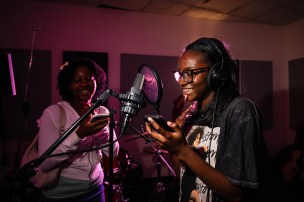Published on
Hats off to these creative grads!
Mortarboards—hats with a flat square top—are a standard accessory of a commencement outfit. Some graduates also use them to make a fashion statement or spread a message. Here are some of the unique 2023 mortarboards.
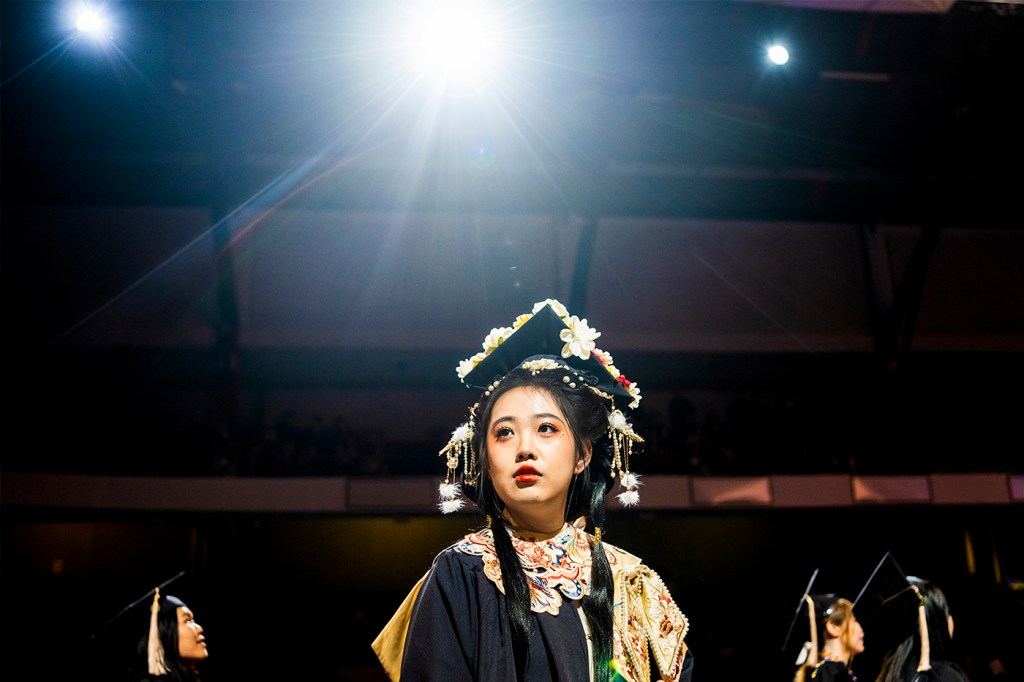
Hours before graduating from Northeastern University with a combined bachelor’s degree in communications studies and business administration Christian Gomez and his grandmother were finishing decorating his mortarboard.
Gomez wanted to pay homage to his people of Tlingit, a southeastern Alaskan Native American tribe.
His grandmother helped him cut out and affix a red raven on the top of his cap. Gomez also wore a stole with ravens on it.
“I was proud to wear these regalia representing my heritage to graduation,” says Gomez, who served as the photo director for Northeastern’s student athletics magazine, “The Red and Black.”
Raven in Tlingit mythology is both a creator and a trickster. Moreover, every person within the Tlingit nation belongs to one of the two moiety, or clans, of Raven or Eagle. Since Tlingit is a matrilineal society, Gomez belongs to the Raven moiety just like his mother.
“I grew up super close to my tribe,” he said.
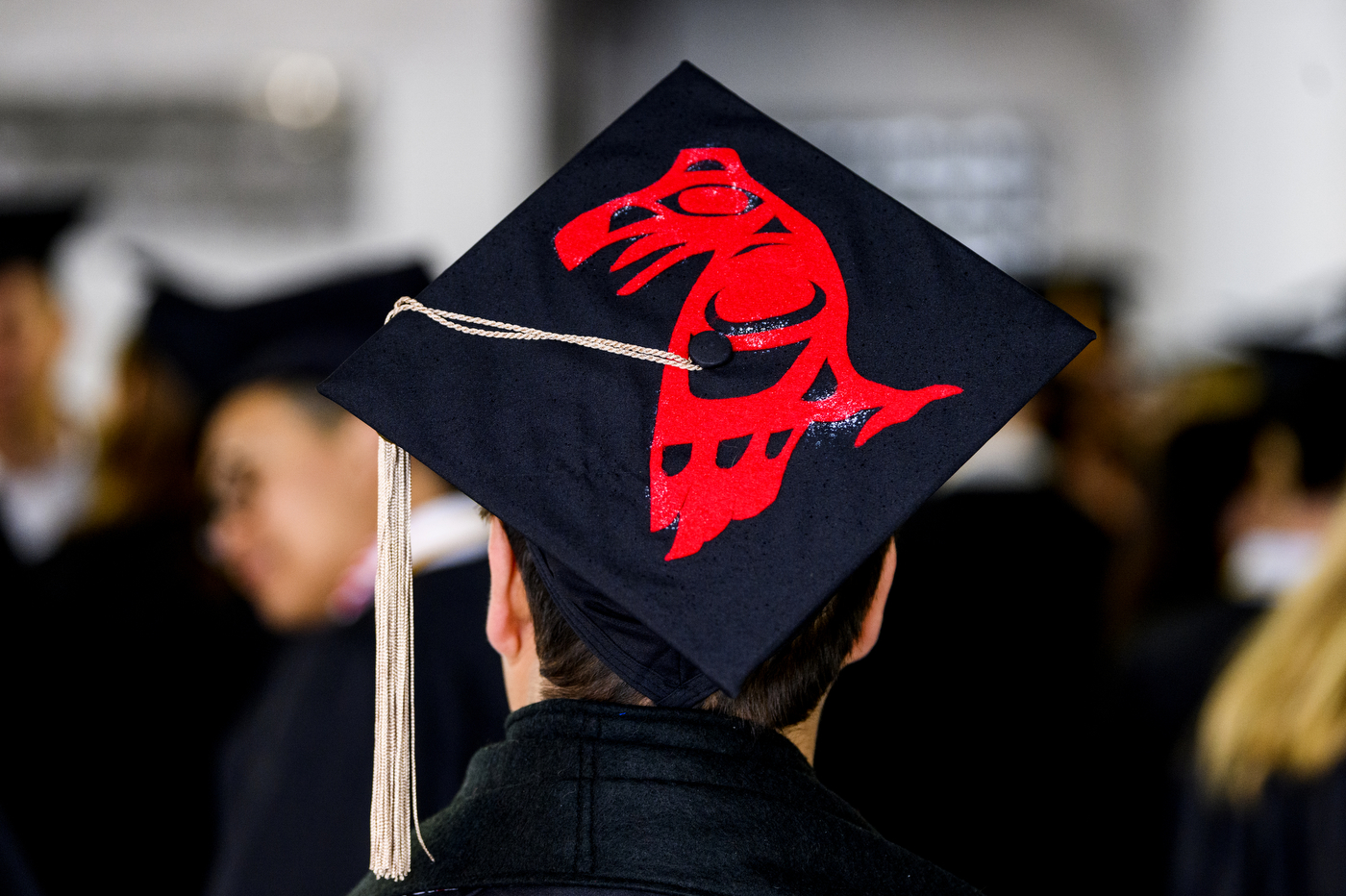
Living in Maryland, he traveled to Alaska most summers to visit relatives and attend cultural camps and events. Even while in college, Gomez would “make it a point to go home” to Alaska, he said, to reconnect with extended family and friends.
Mortarboards—hats with a flat square top—are a standard accessory of a commencement cap-and-gown outfit. They symbolize hard work and academic achievement, but some graduates use them to make a fashion statement or spread a message.
Hundreds of the 2023 Northeastern graduates like Gomez decorated their mortarboards this commencement season using a wide variety of supplies, from flowers, sparkly stickers, pearls and rhinestones to feathers, plush husky toys, QR codes and prescription medication receipts.
Here are a few stories behind some of the decorated 2023 mortarboards.
Samreen Reyaz Ansari
Master’s in Computer Science
For her mortarboard, Ansari picked a line of Darth Vader, a fictional character in the Star Wars franchise, that said “I was but the learner, now I am the master.”
She added blue and red lightsabers, or energy swords—the weapons featured in Star Wars—to golden letters.
“I completed my master’s degree, and I learned a lot of things. I am the master now,” Ansari said, laughing. “I love Star Wars.”
She hasn’t decided yet what the next step in her career will be after graduation, but she is equally interested in machine learning, artificial intelligence, robotics and software engineering.
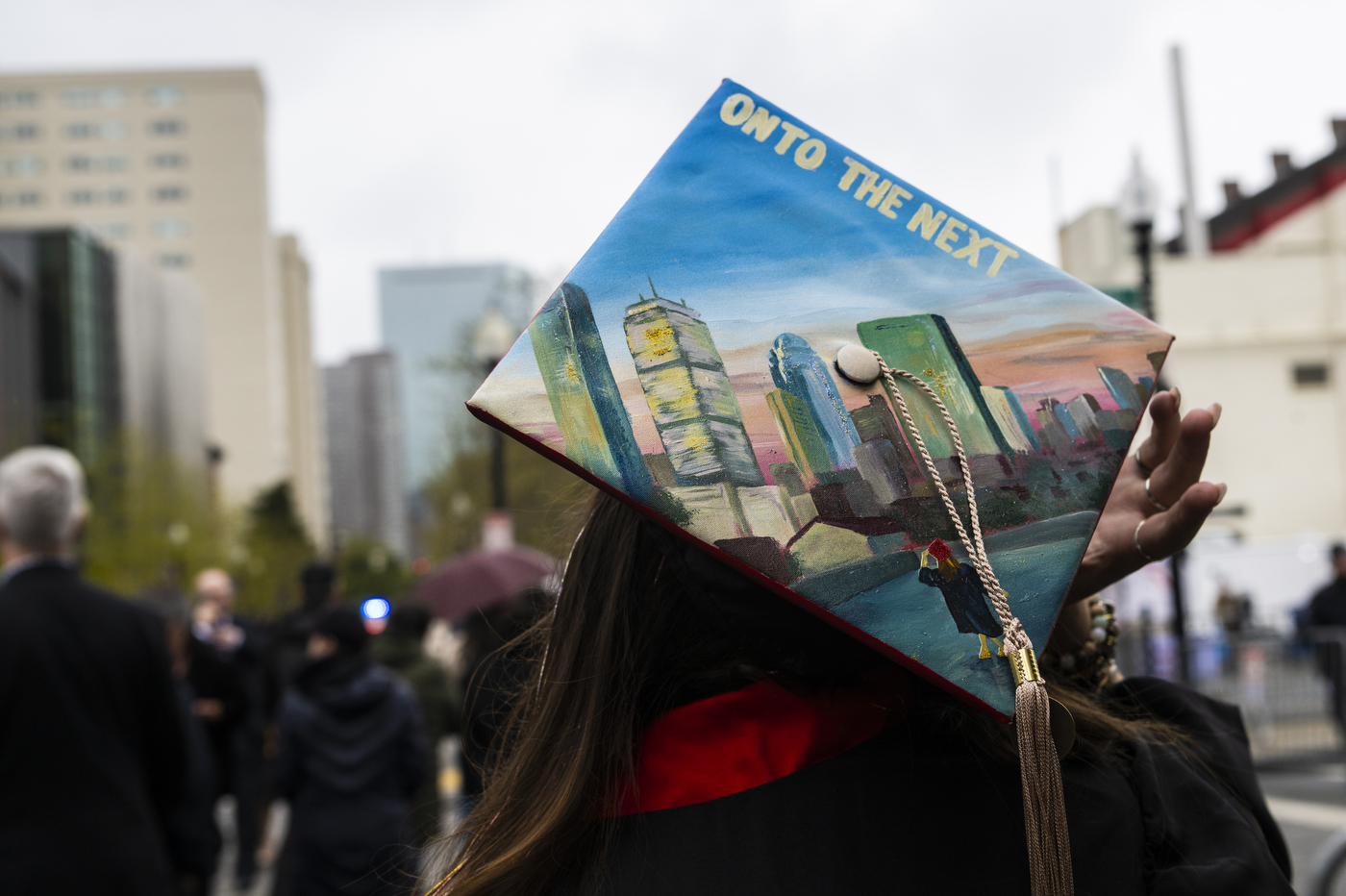
Erika Entz
Bachelor’s in Marketing Analytics, Social Innovation, Entrepreneurship
“One of my favorite places on campus has always been the Columbus parking garage,” Entz said. “I love the view from up there.”
So, on one of the especially warm days in April, Entz went to the top of the garage and took some photos of the Boston skyline at sunset. Those photos inspired her to turn the top of her mortarboard into a painting.
Entz, who grew up in Maine, painted herself dressed in a cap and a gown looking at the city skyline. She colored her mortarboard in the painting red to stand out and added a motto in the sky, reading “Onto the next.”
“I really feel like you can come [someplace], be there, be present, but then when it’s time to move on to the next thing, you feel it,” Entz said about her choice of the motto. “And that’s what I’m really feeling right now. It’s like this is the end of a chapter and I really want to be wrapped up and ready to go for that [next thing].”
She is not a painter, however.
“But I do love making art and being creative. That’s why I pursued marketing and entrepreneurship because they really give me a creative outlet,” Entz said.
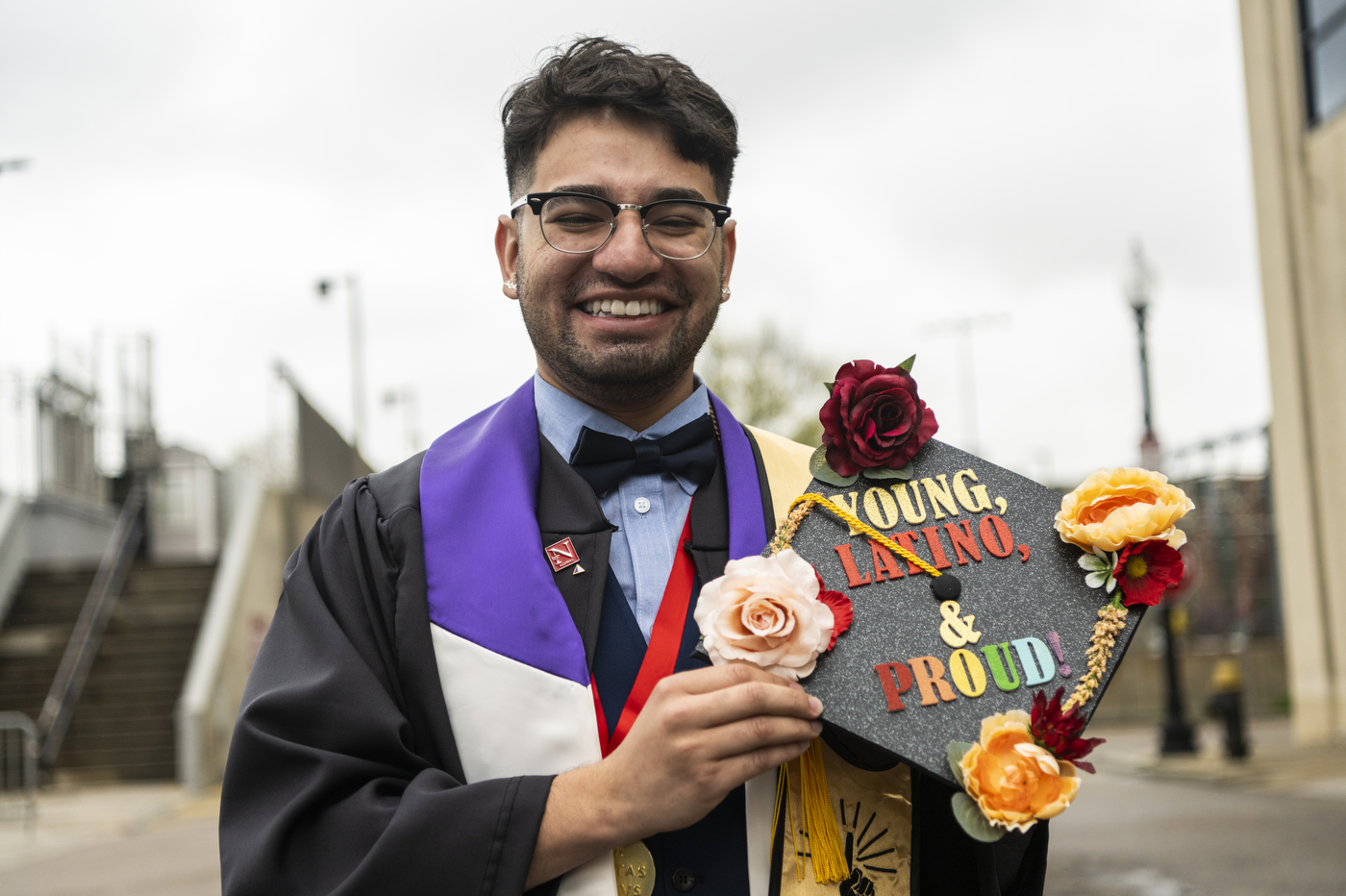
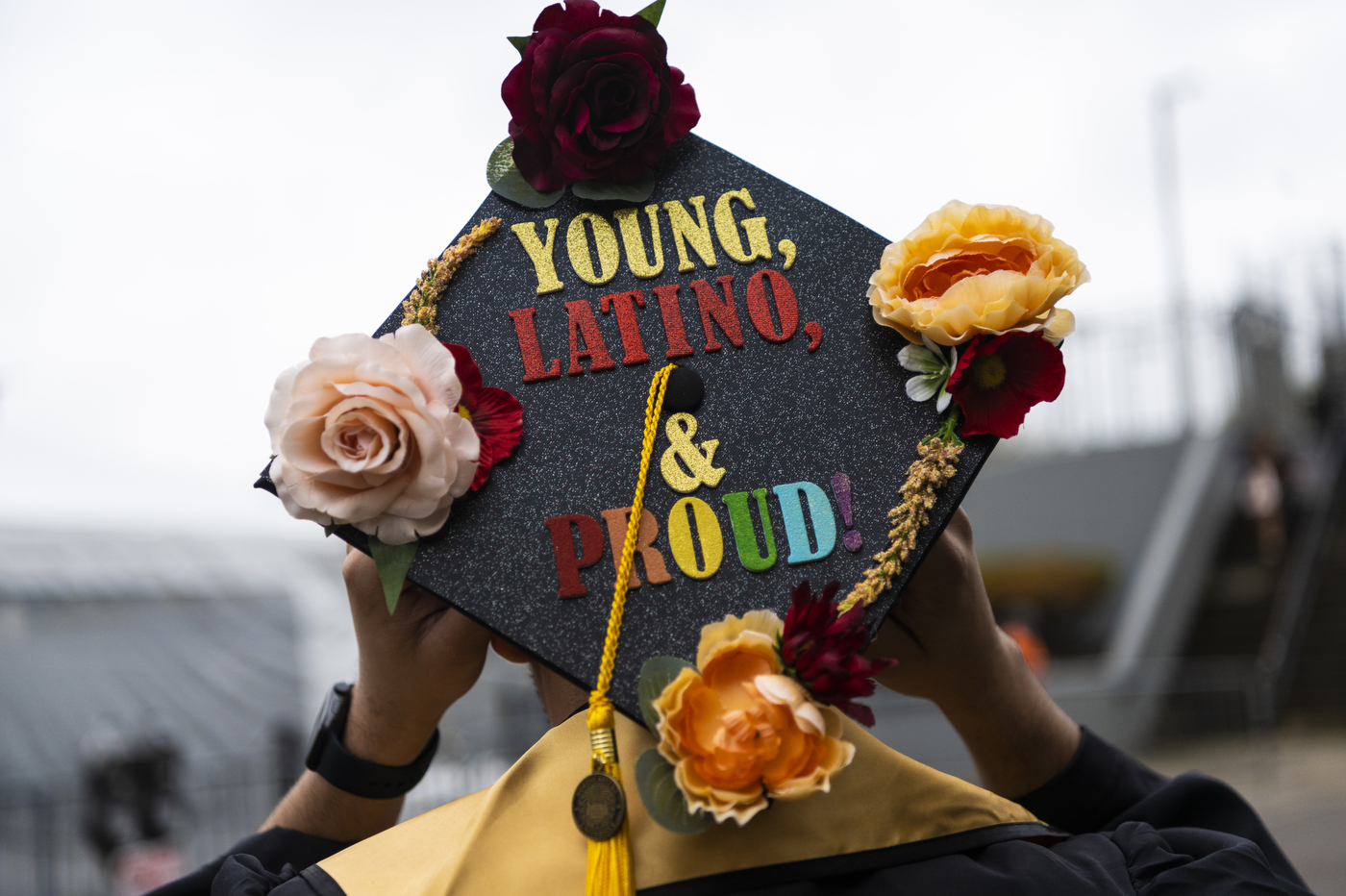
Jeremy Rodriguez Canales
Bachelor’s in Behavioral Neuroscience
Rodriguez Canales is a first generation 2023 college graduate from Nevada. His mortarboard design read “Young, Latino, & Proud” in golden, red and rainbow colors.
“I wanted to do something that represented my background. I wanted to make my family proud,” said the honors student. “But also I wanted to show that my sexuality is such a big part of my personality.”
Rodriguez Canales also wore a pin and a stole for the international medical fraternity, Phi Delta Epsilon, he is a member of and pins with the American and Nevada state flags.
“There are not many of us here,” he explained.
Caleb Chung
Bachelor’s in Computer Science
Chung got inspiration for his mortarboard decoration from a Harry Styles’ song “Sunflower, Vol. 6.” He wrote in a green marker a line from the song “Plant new seeds in the melody” and drew some budding seedlings along the edge.
“I like the song a lot,” Chung said. “It’s just like I’m starting a new life, planting new seeds. The melody is like my story, my future.”
Chung himself plays guitar and ukulele and enjoys finding new music to listen to.
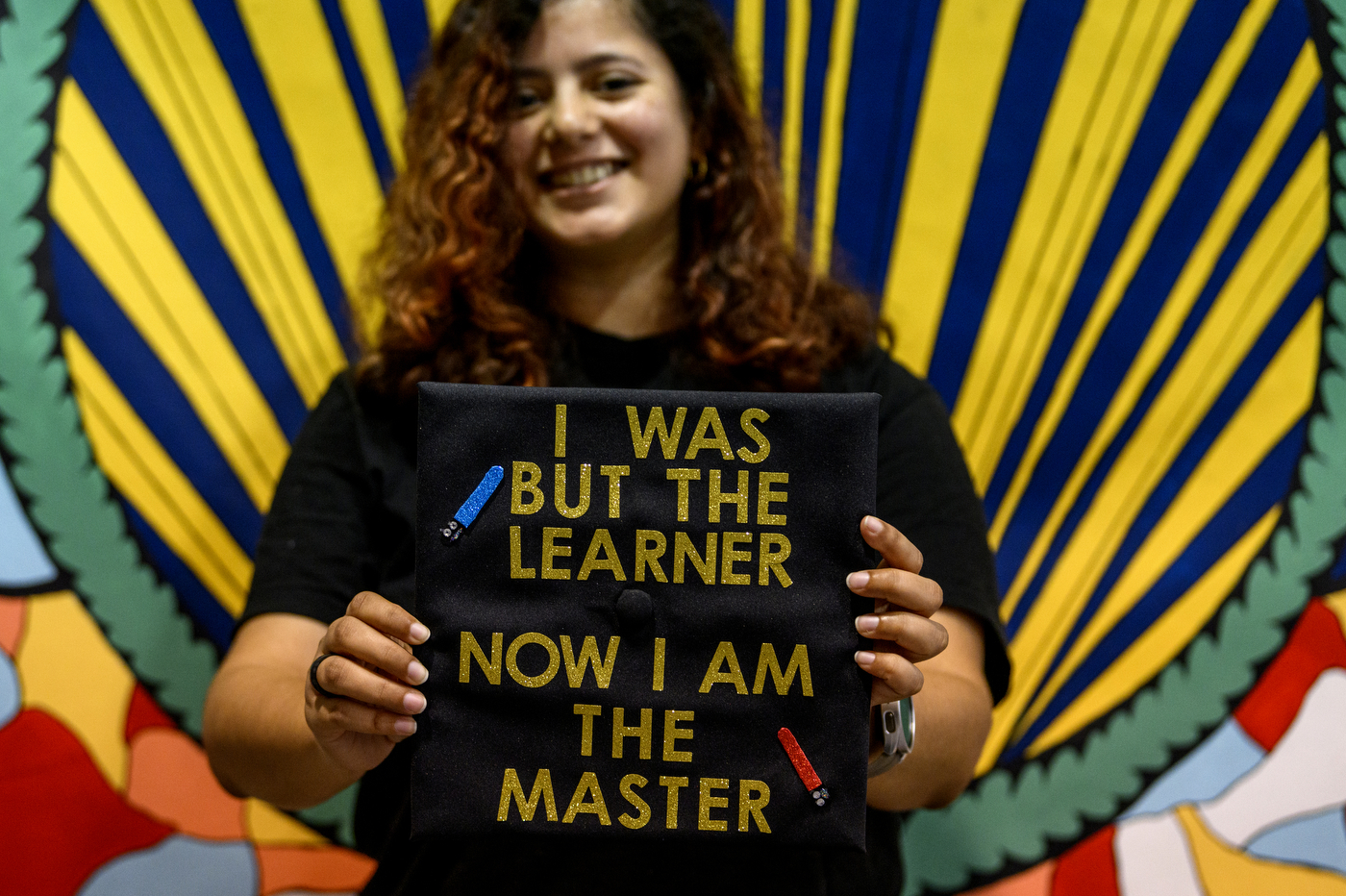
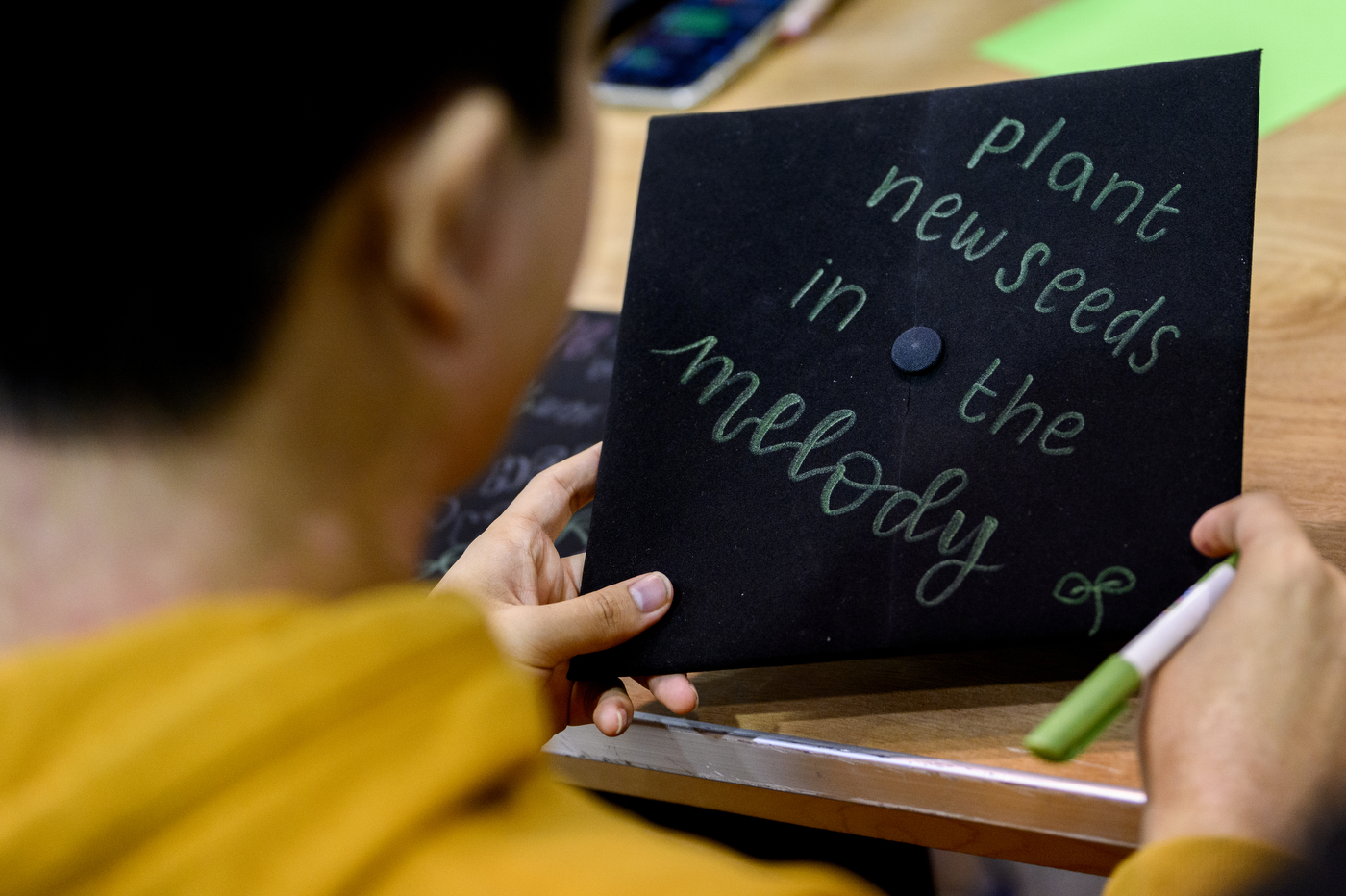
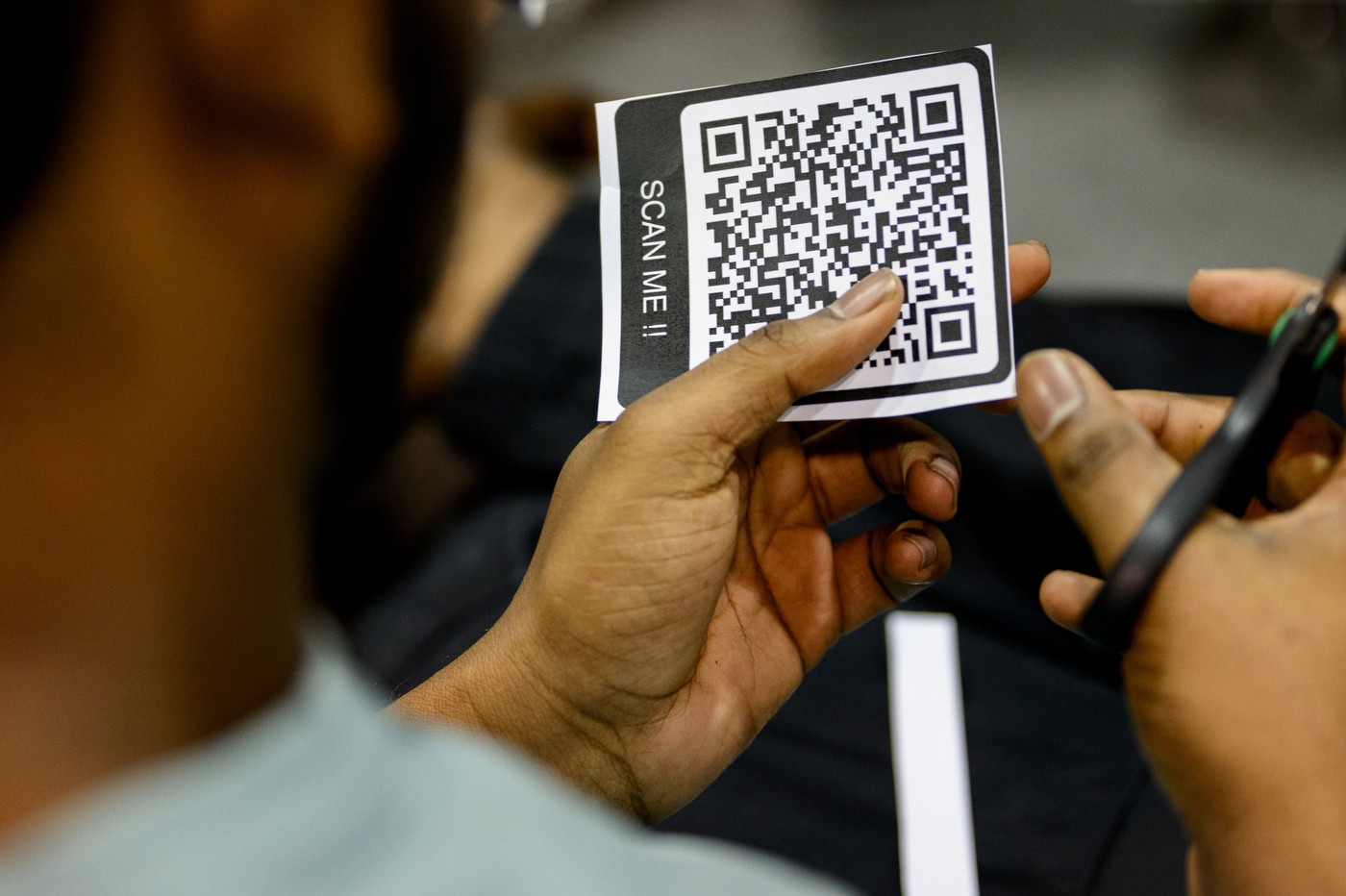
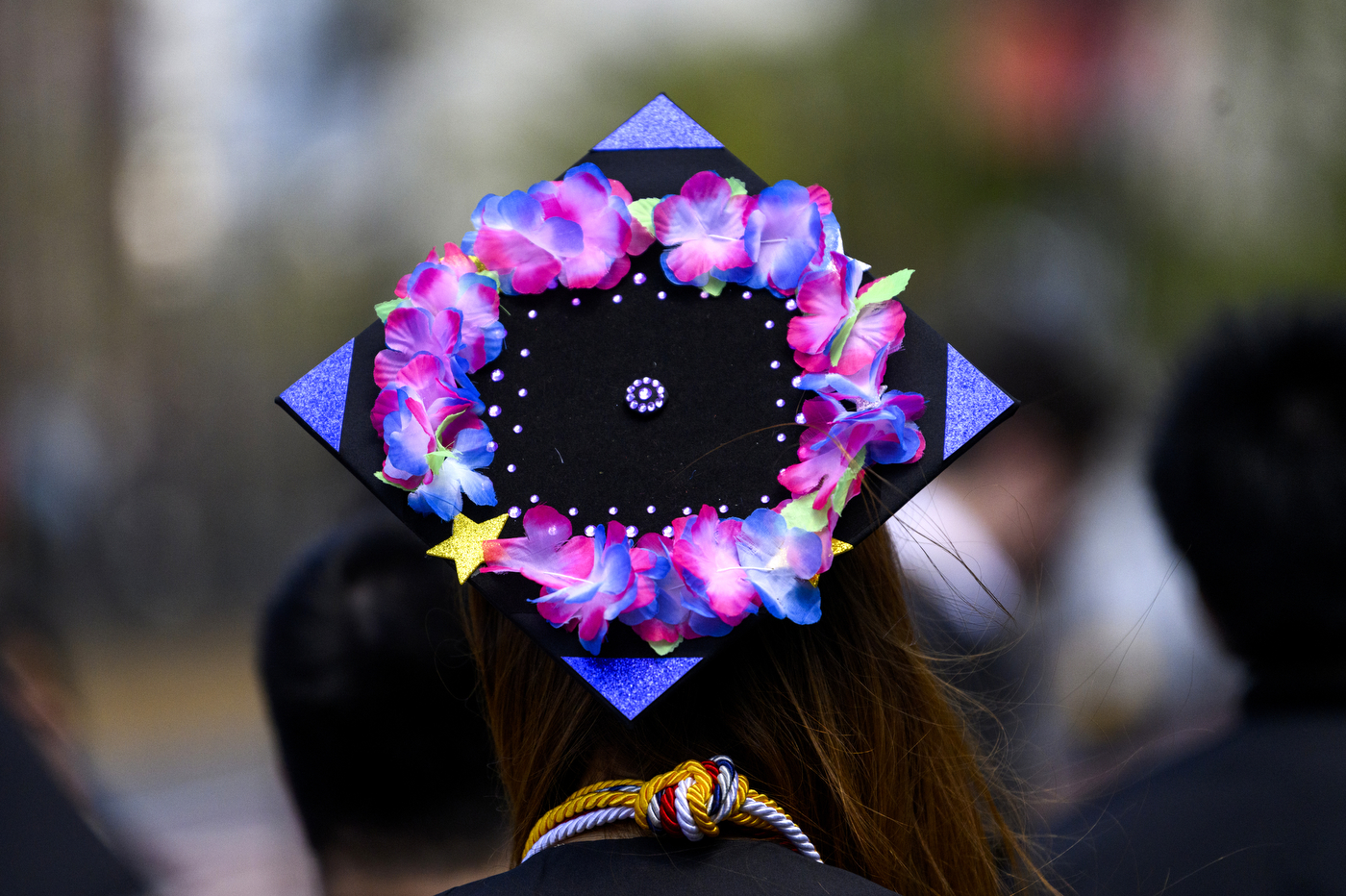
Theresa Zheng
Bachelor’s in Pharmacy Studies
Zheng was a rare exception to the mortarboard tradition. Instead of donning a black graduation cap she wore a traditional floral crown, called mwarmwar (pronounced [marmar]), and a neck lei from the island of Saipan for Bouvé College of Health Sciences graduation.
Zheng was born to Chinese parents, who immigrated to Saipan, a U.S. territory in the Western Pacific and the largest of the 12 Northern Mariana Islands.
“It was important for me to represent home like that,” Zheng said, “because it reminded me of my roots, who I am and what I am doing it for.”
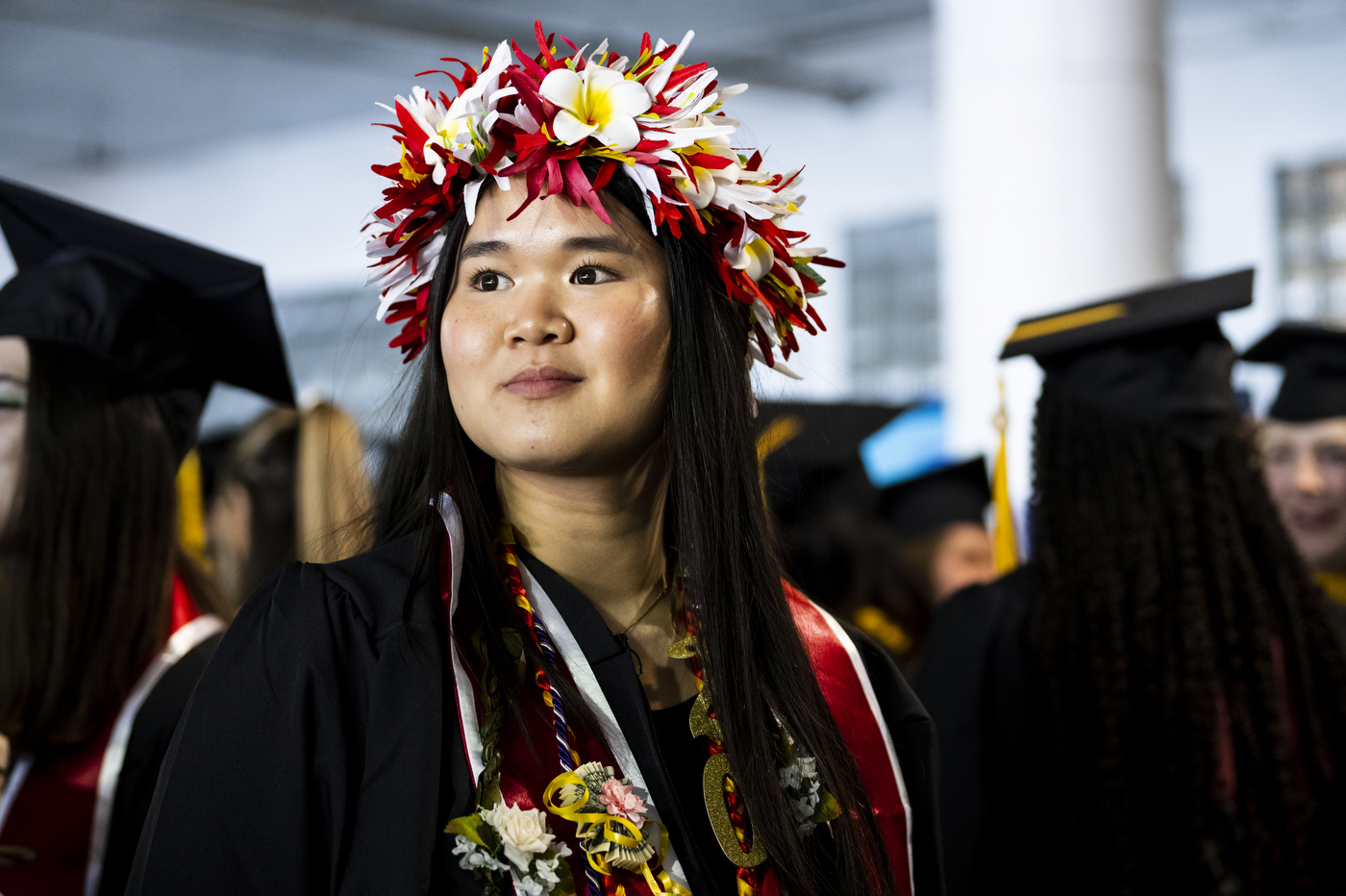
Zheng’s parents and a few family friends traveled 24 hours from Saipan to Boston. They brought the mwarmwar and the lei with them, which were made by friends and family back on the island. The headpiece included Saipan’s native flower, Plumeria, while the lei was woven from banana leaves with flowers, ropes and origami, made out of paper money.
Although Zheng had always considered herself Chinese American, she said, the island culture with its tight-knit community, weekends at the beach and barbecues shaped her.
When she came to Boston, nobody knew where her island was. She had to overcome the cultural shock and adapt. But she knew, she said, there were people at home who were cheering her on.
Zheng is going to continue with her doctorate in pharmacy studies at Northeastern. She would like to work in the underserved communities in the future.
“It’s definitely been a dream of mine,” Zheng said. “Someone’s got to be on their side. So, I’m going to be watching out for them.”
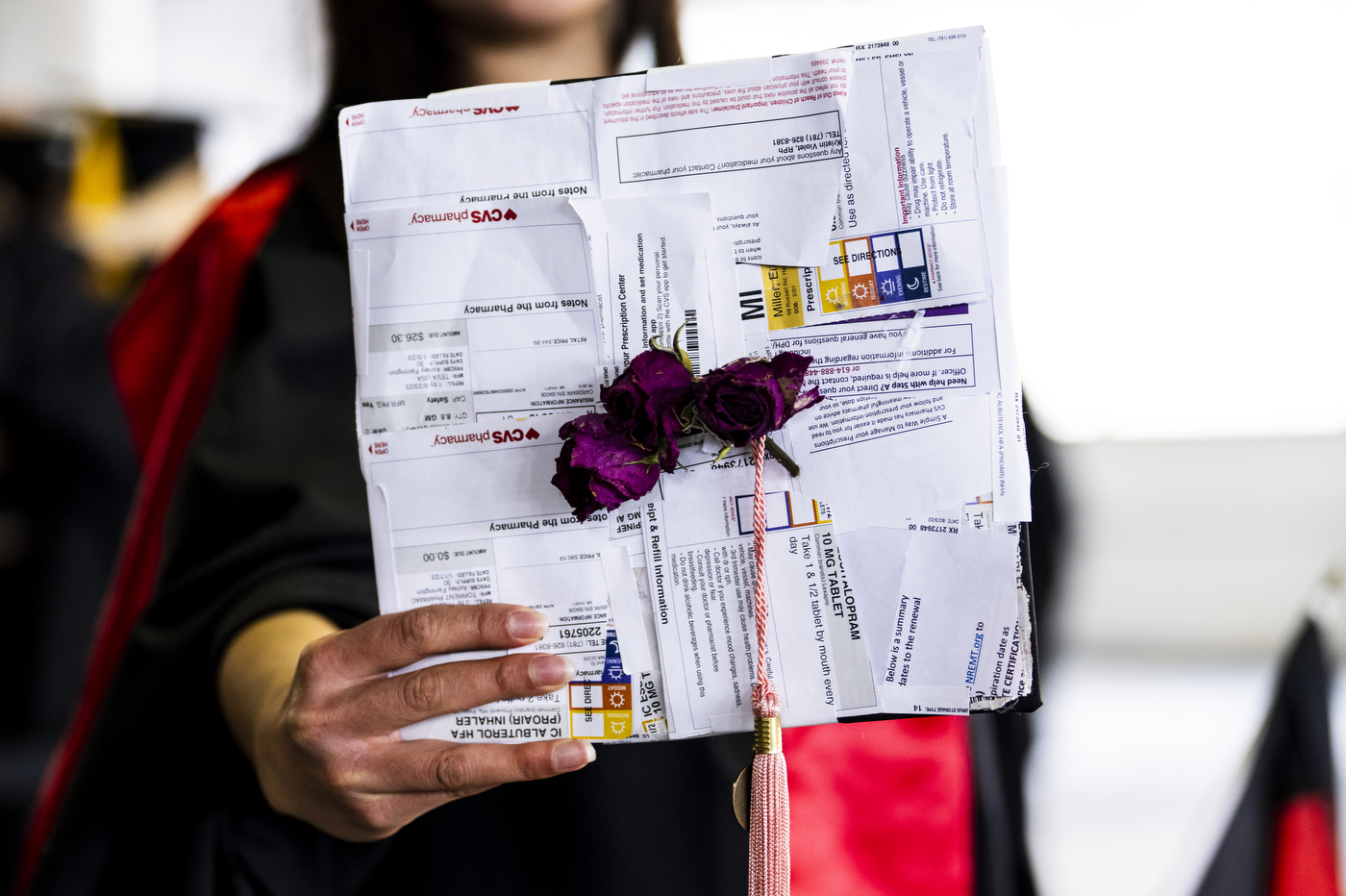
Emelyn Miller
Master’s in Public Health
Miller’s mortarboard design was inspired by the good and the tough times during her master’s program.
“These last few years in college have been pretty tough in terms of mental health struggles,” Miller said.
She used the instructions and different parts of labels from her prescription medications to cover the top of her cap. She also added some dried flowers.
“Because even in the desert we can still flourish, and flowers can still bloom in the hard times,” she said. “It’s so important to always take in the joys and even the simple things that bring joy to our lives.”
Miller said she would like to work in Afghanistan one day because every country needs specialists in global health. For now, she is applying for positions in public health stateside.
Meng Han
Bachelor’s in Business Administration
For her graduation from the D’Amore-McKim School of Business Han wore a mesmerizing traditional Chinese ensemble called hanfu. It was inspired by clothing from the Ming Dynasty period, she said, which ruled in China from 1368 to 1644.
Han, who grew up in Beijing, the capital of China, wore an ornate embroidered collar adorned with pearls atop a robe. Her mortarboard was overflowing with flowers. She added hair accessories with traditional Chinese elements to her hairstyle including Chinese Phenix, small white flowers, dangling strings of pearls and fuzzy pompoms.
“In Chinese culture a phenix means female power,” she explained.
Traditional makeup completed her look.
Han said many people came up to her and complimented her outfit.
“I really appreciate them,” Han said. “I’m very glad that my culture can be appreciated, favored by people from all over the world.”

Alena Kuzub is a Northeastern Global News reporter. Email her at a.kuzub@northeastern.edu. Follow her on Twitter @AlenaKuzub.

